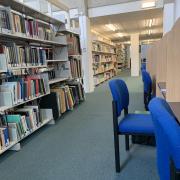
Global warming is a serious issue, and is caused by an increase in the amount of greenhouse gases in the Earth's atmosphere, mainly through human activities such as burning fossil fuels.
Although the effects of global warming may not appear obvious at first, after long periods of time they can be fatal.
An example of these critical consequences is the escalation of sea levels, and more frequent severe weather. High temperatures and a warmer climate lead to an atmosphere which can collect and hold more water. This in turn causes wet areas to become even wetter, while arid areas become even more dry. These weather changes pose an immense risk to the safety of many communities; long periods of heavy rainfall increase the chance of flooding, and around 10,000 homes are built on floodplains in the UK alone, leaving them extremely susceptible to floods. As well as that, droughts cause the chances of wildfires to soar, and make access to clean drinking water very difficult. Between July 2019 and February 2020, the NSW Rural Fire Service reported 11,264 bush/grass fires, and 2,439 homes destroyed.
There are other issues as well. Some scientists speculate that within the next 100 years, the world's glaciers will have vanished. However this poses a dangerous question: what will happen to all that water? Coastal countries, such as Cambodia, Indonesia and Vietnam will see a surge in flooding events, and many will see large areas of their land submerged. However it is not only the human population that will be affected - many animals will have their habitats destroyed as well.
But how do we counter this?
One major defence against global warming is the use of renewable energy. These include solar, wind and wave energy. This way we can replace the many carbon emitting energy sources that we have running, all over the world; CO2 is a greenhouse gas, and the release of it adds to the layer of greenhouse gases in the atmosphere. These trap heat and are the causes of rising temperatures. By lowering our uses of these carbon-heavy sources, the layer slowly stops thickening, and therefore steadying these increasing temperatures. The hazardous affects of global warming will no longer be as destructive as they were before.
If we globally work together and put effort into using more renewable energy sources, we're looking at a much greener future.






























